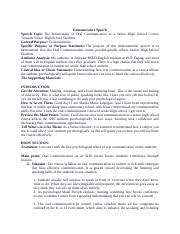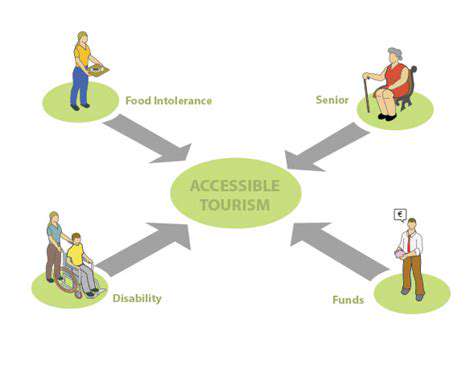How to Travel with Dietary Restrictions
Understanding Dietary Restrictions
Traveling with dietary limitations requires meticulous preparation. Thoroughly investigating your destinations isn't just about scanning menus—it's about immersing yourself in the region's culinary culture. Every locale has its own approach to food preparation and common dietary accommodations, whether vegetarian, vegan, or gluten-free alternatives. This groundwork prevents unpleasant surprises and guarantees satisfying meals throughout your journey.
Modern establishments increasingly provide comprehensive online resources about their offerings. Leveraging these digital assets enables travelers to make educated choices about where to dine and stay, eliminating guesswork and potential disappointments.
Restaurant Research: Going Beyond the Menu
While digital menus offer convenience, authentic traveler reviews reveal the most valuable insights. Seek feedback from diners who share your dietary profile to identify establishments that truly understand and accommodate special requirements. This approach helps uncover hidden culinary treasures that align perfectly with your needs.
Investigating preparation techniques and uncommon ingredients is equally vital. For instance, those avoiding dairy should examine whether local dishes incorporate milk products in unexpected ways—a precaution that can prevent allergic reactions or discomfort.
Accommodation Research: Beyond the Bed
Your lodging choice significantly impacts your dietary experience. Prioritize properties offering kitchen facilities—this autonomy allows complete control over ingredients and cooking methods. For travelers with severe allergies or strict dietary regimens, this option proves indispensable.
Breakfast accommodations warrant special attention. Some hotels provide extensive customizable morning meals, while others maintain limited selections. Understanding these variations beforehand facilitates better meal planning and ensures your nutritional needs are met from daybreak.
Dietary Needs and Local Cuisine Fusion
Navigating local gastronomy within dietary boundaries can become an exhilarating exploration. Traditional markets and street vendors frequently offer authentic, diet-compliant specialties. These off-the-beaten-path discoveries often yield the most memorable culinary encounters, blending cultural immersion with dietary safety.
Region-specific food blogs and guides serve as excellent resources for identifying eateries that accommodate special diets. These localized recommendations help visitors confidently navigate unfamiliar food landscapes while uncovering exceptional dining spots.
Finding Restaurants with Specific Dietary Options
The hospitality industry has evolved to prominently feature dietary accommodations. Establishments that clearly label gluten-free, plant-based, or allergen-free options demonstrate their commitment to inclusive dining. This transparency allows diners to identify suitable venues quickly and confidently.
Customizable dining experiences offer particular advantages. Flexible menu structures empower guests to tailor dishes to their specific requirements while still enjoying the establishment's culinary signature.
Accommodation Options for Dietary Restrictions
The lodging sector has responded to growing dietary awareness by enhancing their offerings. Properties that provide detailed dietary information during the booking process demonstrate their preparedness to accommodate special needs. This transparency helps travelers make informed decisions about their stay.
Many accommodations now include dietary preference fields in reservation systems. Early communication enables staff to prepare appropriate options, ensuring guests' needs are addressed from arrival.
Travel Resources and Tools
Specialized digital platforms have emerged to assist dietary-conscious travelers. These niche resources aggregate verified information about diet-friendly establishments, streamlining the research process. Such tools help pinpoint ideal dining and lodging options that align with specific nutritional requirements.
The proliferation of dietary-focused mobile applications has transformed on-the-go meal planning. These handy tools enable real-time location-based searches for compliant dining options, providing peace of mind during travel days.


Exploring Alternative Dining Options: Beyond the Mainstream
Exploring Ethnic Cuisine
Ethnic culinary traditions offer gateways to cultural understanding through flavor. Each region's distinctive dishes—from aromatic Indian masalas to subtle Japanese umami—tell stories of history and environment. Authentic ethnic dining provides more than sustenance; it creates connections to local heritage and contemporary life.
Venture beyond tourist districts to discover neighborhood favorites where traditional techniques and indigenous ingredients shine. These genuine culinary experiences reveal a destination's true character far more vividly than commercialized versions.
Embracing Vegetarian and Vegan Options
The global rise of plant-based diets has transformed travel dining landscapes. Many destinations now boast extensive meat-free offerings, whether from longstanding vegetarian traditions or modern adaptations. Seasonal, locally-sourced produce often forms the foundation of these dishes, resulting in vibrant, flavorful creations that delight even non-vegetarians.
Cultural contexts matter—some societies have centuries-old vegetarian practices yielding unique dishes unavailable elsewhere. Remaining open to these specialties can lead to delightful gastronomic revelations.
Utilizing Grocery Stores and Local Markets
Retail food markets provide unparalleled access to regional ingredients and everyday eating habits. These venues showcase seasonal bounty and artisanal products unavailable in restaurants. For travelers seeking deeper cultural immersion, market visits and self-prepared meals offer authentic engagement with local foodways.
This approach combines budgetary efficiency with dietary control, particularly beneficial for extended stays. The hands-on experience of selecting and preparing local ingredients creates lasting memories and practical knowledge about regional cuisine.
Dining in Cafes and Smaller Eateries
Neighborhood food establishments often deliver the most genuine local experiences. These intimate venues typically feature family recipes and hyper-regional specialties absent from tourist menus. The personal interactions possible in such settings frequently yield valuable insights into authentic dining customs and off-menu possibilities.
Catering to Specific Dietary Restrictions and Needs
Managing strict dietary requirements abroad demands proactive measures. While many restaurants now accommodate special needs, direct communication remains essential for those with severe allergies or medical dietary restrictions. Advance inquiries about ingredient sourcing and preparation methods prevent potentially dangerous misunderstandings.
Digital translation tools can bridge language gaps when explaining dietary needs. Carrying professionally translated dietary cards provides additional assurance when verbal communication proves challenging.

![Planning a Family Camping Trip [Beginner's Guide]](/static/images/27/2025-04/MakingtheMostofYourCampingExperience.jpg)








![How to Pack a Carry On Only [Minimalist Guide]](/static/images/27/2025-05/AccessoriesandDocuments3AKeepingitCompactandOrganized.jpg)

